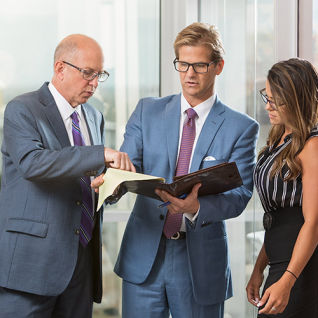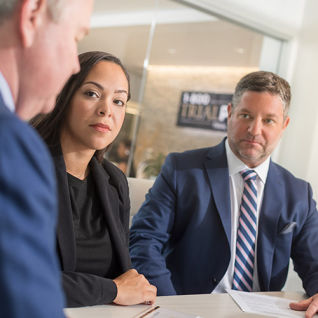Damage to any part of the spinal cord or nerves at the end of the spinal canal often cause permanent injuries. Your ability to control your limbs after spinal cord injury depends on the place of the injury and the severity of the injury. Paralysis from a spinal cord injury is referred to as tetraplegia, also known as quadriplegia, which means your arms, hands, trunk, legs and pelvic organs are all affected by the injury.
A serious spinal injury is not always obvious. If you suspect spinal cord injury, call 911 and do not move the injured person. It is best to assume there is a spinal cord injury after a trauma until proven otherwise.
Spinal Fusion Surgery
Spinal fusion surgery permanently joins two or more bones in the spine so there is no movement between them. Spinal fusions are done if there is an injury or fracture to the bones in the spine, weak or unstable spine caused by injections or tumors, spondylolisthesis, scoliosis or arthritis and spinal stenosis. A graft (such as bone) is used to hold the bones together permanently. The strips of bone graft material are placed over the back of the spine, or bone graft material may be placed between the vertebrae. The vertebrae may also be fixed together with rods, screws, plates or cages to keep the vertebrae from moving until the bone grafts fully heal. This surgery typically lasts 3-4 hours.
Bulging Discs
Bulging discs usually remain asymptomatic; however they can cause discomfort and disability in various parts of the body if the disc compresses an adjacent nerve root. Pressure from the central core of the disc can stretch to the outer rim, causing the disc to bulge. As long as the bulging area does not press upon surrounding tissues, no symptoms occur. Once the bulge impinges on the nerves of the spine, the damaged disc can cause pain to travel to the hips, buttocks, legs, feet, arms, and fingers. If the bulge causes discomfort and pain, rest, warm compresses, medication and exercise are usually recommended. If the conservative treatment fails, steroid injections are usually recommended. If the injections fail to relieve the pain, the next step is a minimally invasive spinal surgery performed with lasers.
Herniated Discs
A herniated disk, also called a slipped disk, protruding disk, or a ruptured disk, refers to a problem with one of the rubbery cushions (disks) between the vertebrae.
A spinal disk is like a jelly donut, with a softer center encased within a tougher exterior. A herniated disk occurs when some of the softer "jelly" pushes out through a crack in the tougher exterior. A herniated disk can irritate nearby nerves and result in pain, numbness or weakness in an arm or leg. There are many treatment options for a disc herniation, including several different surgical options, depending on the severity of the herniation.
Laser Spine Surgery
One common misconception about laser surgery is that it does not require the use of traditional instruments. In actuality, the laser device is only a small part of the actual procedure. Scalpels and other traditional tools are used to make the initial incisions, placing the laser in the correct place for the procedure. Bone and ligaments are removed or repositioned using the same methods as any traditional bone surgery.
As a procedure, laser spine surgery has few outspoken critics. The same cannot be said for laser spine surgery as a business. It has come under fire for unethical or unscrupulous methods of getting patients in (then out) the door quickly. In 2014, a Tampa-area laser spine surgery provider faced a lawsuit for allegedly performing a complex, high-risk procedure on an outpatient basis—forcing their patient to seek treatment at a hospital immediately after a seven-hour operation.
Other criticisms of laser spine surgery centers include:
Some surgeons have also noted that spine surgery is safer, more effective, and less costly using traditional methods rather than laser surgery in some cases. Former professional wrestler Hulk Hogan sued a laser spine provider for charging him hundreds of thousands of dollars for procedures that weren’t effective. He may have been lucky—others patients were left with limited mobility and wrongfully fused vertebrae.
How Can Our Orlando Spinal Injury Attorneys Help You
Please contact an experienced Florida spinal cord injury attorney at Trial Pro as soon as possible after your injury. The days immediately following your accident are crucial, and we will take the necessary steps to protect your rights. We take each case on a contingent basis, meaning we do not receive any payment unless your case is successful.
Our friendly, sympathetic spinal cord injury lawyers will walk you through every step of the process so you are informed and feel confident in your case. Our back injury attorneys are experienced in your specific injury and are familiar with the costs of future medical treatment as well as the value of each individual case and injury.
Our goal with each case is to ensure our client receives every penny they are entitled to. We are committed to holding the at-fault party fully accountable for their actions. Contact us at 800-874-2577 to speak with an Orlando catastrophic injury lawyer at our office.





































